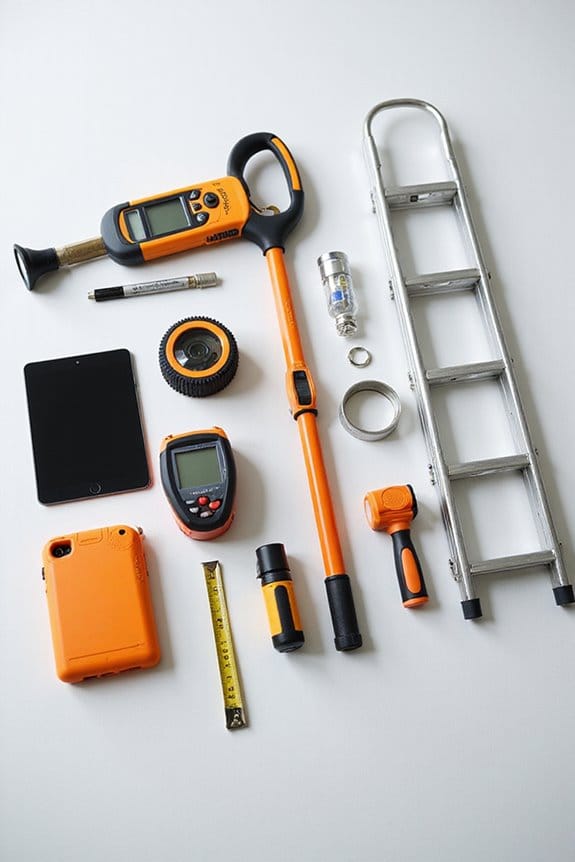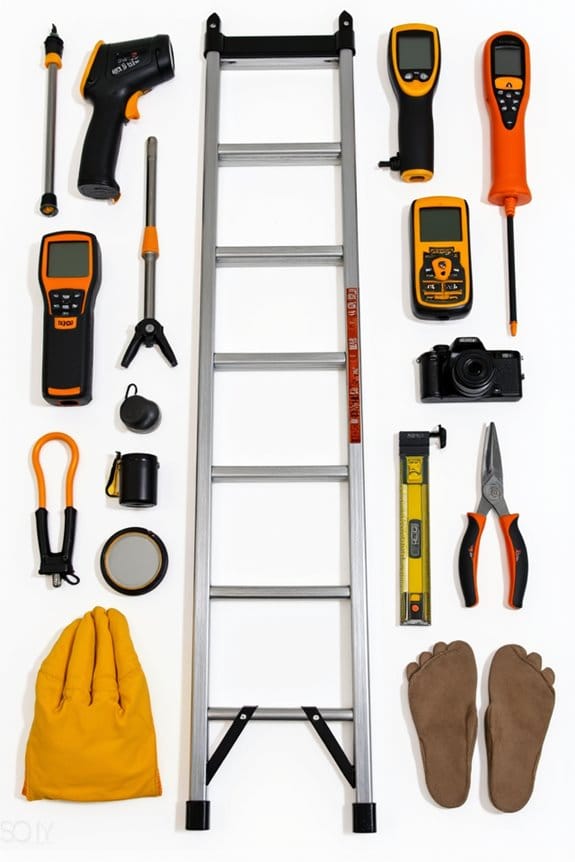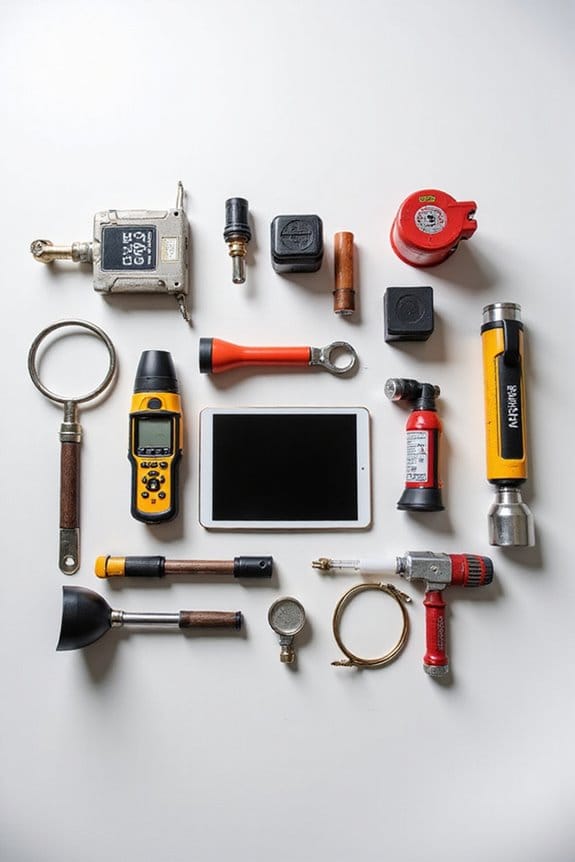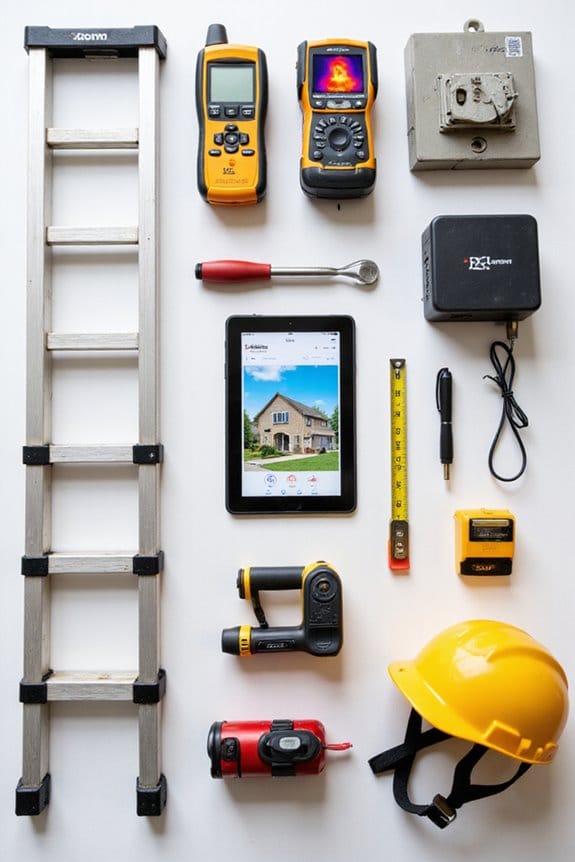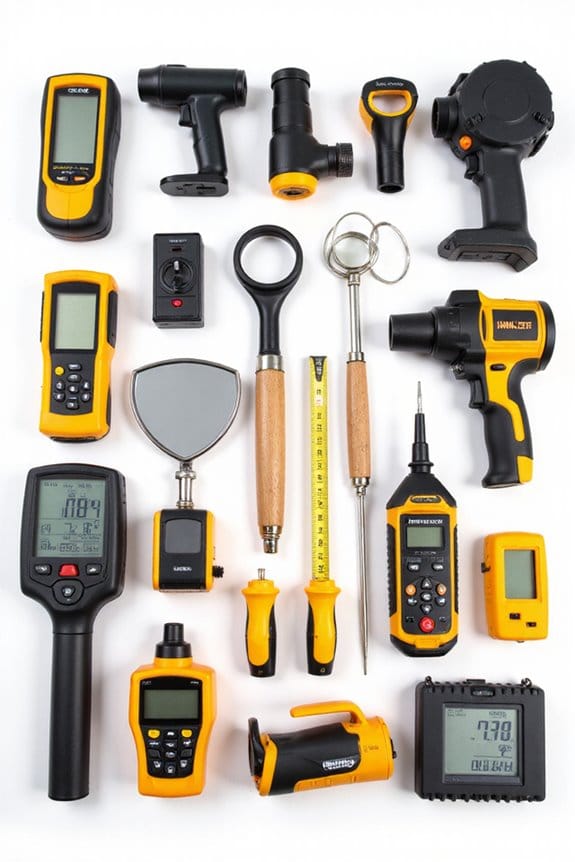A home inspection usually takes 1.5 to over 6 hours, depending on a few factors—like size and condition. Here’s a quick breakdown: Small homes (under 1,000 sq ft) take about 1.5 to 2 hours, while larger homes can go up to 4 hours or more. Keep in mind, older houses or those in disrepair can add extra time. So, grab some coffee and get comfy. There’s plenty more to uncover about home inspections!
Key Takeaways
- Home inspection duration varies by size: small homes take 1.5-2 hours, medium homes 2-3 hours, and large homes 3-4 hours.
- Factors like the age and condition of the home can add 30 minutes to an hour to the inspection time.
- Occupied homes require more time due to the presence of belongings, potentially extending the inspection duration.
- Standard inspection averages around 2.5 hours, with each additional 500 sq ft adding about 30 minutes.
- Reports are typically delivered within 24 to 48 hours post-inspection, depending on complexity and note-taking efficiency.
Average Duration Based on Home Size
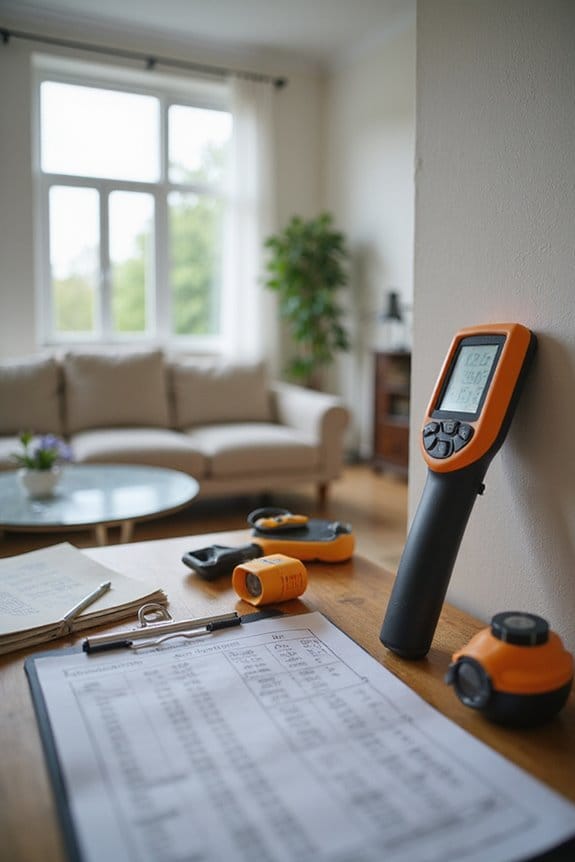
When you’re gearing up for a home inspection, it’s good to know that the duration can really depend on the size of the home. Here’s a quick breakdown:
- Small Home Inspections (under 1,000 sq ft): Typically, these take about 1.5 to 2 hours. Less space means fewer systems to check, making it quicker.
- Medium Homes (1,000 to 2,000 sq ft): Expect around 2 to 3 hours. More rooms mean more time, but it’s still manageable.
- Large Home Inspections (2,000 to 4,000 sq ft): Buckle up for 3 to 4 hours. The complexity ramps up, so take a coffee break!
- Very Large Homes (over 4,000 sq ft): These can stretch beyond 6 hours! That’s a marathon inspection, folks.
Factors Influencing Inspection Time
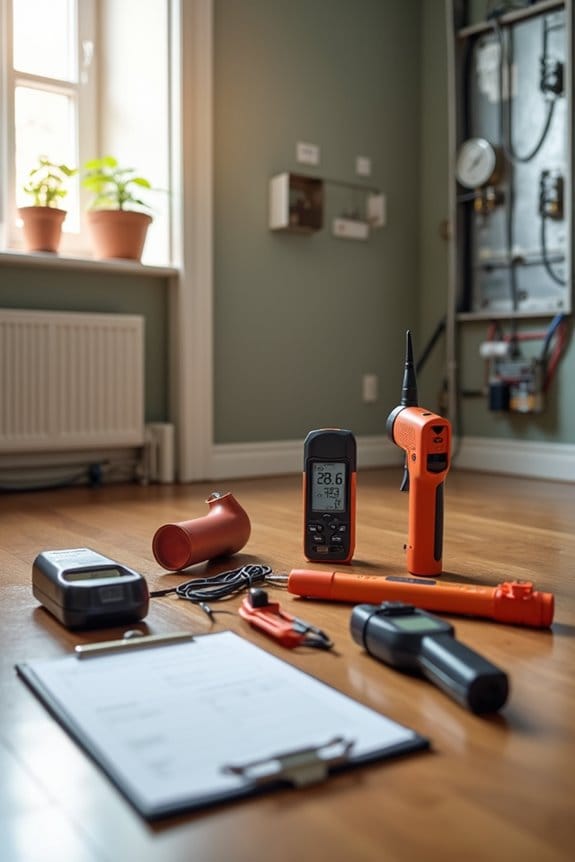
Understanding how long a home inspection takes involves more than just the size of the house. Here are some key factors that can influence inspection time:
- Type of Home: Apartments take less time than multi-family properties, which can require a full day due to their inspection complexity.
- Age of Home: Older homes often take longer—about 30 minutes to an hour—because they might have hidden issues needing thorough evaluation.
- Condition of Home: Poorly maintained homes can extend the inspection time due to visible and hidden problems.
- Occupancy Status: Inspections in occupied homes usually take longer due to maneuvering around personal belongings.
- Inspector Efficiency: Experienced inspectors typically work faster, so their efficiency can notably impact the total time needed.
Typical Components of a Home Inspection
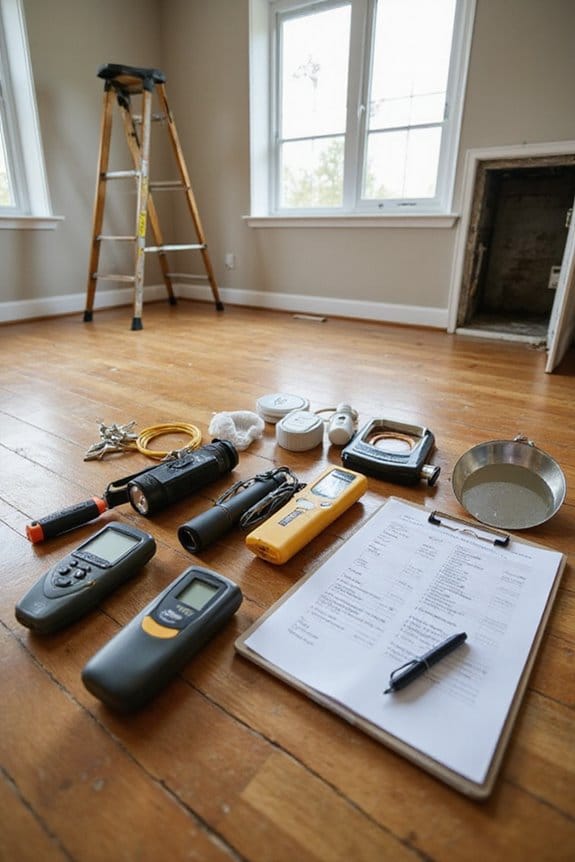
A home inspection is like a health check-up for your property. It guarantees everything’s in tip-top shape! Here’s a quick inspection checklist of typical components:
- Exterior: Inspect the foundation, siding, and drainage. Check windows and doors for weatherproofing.
- Roofing: Look for missing shingles, leaks, and guarantee gutters are clear.
- Plumbing: Check for leaks in visible pipes and assess the water heater’s condition.
- Electrical: Inspect the service panel, wiring, and test outlets for safety.
- Interior and Ventilation: Examine walls, ceilings, and guarantee proper ventilation in attics and crawl spaces.
These components help identify issues early on, saving you from bigger headaches later. Trust me, it’s worth the time!
Correlation Between Home Size and Inspection Duration
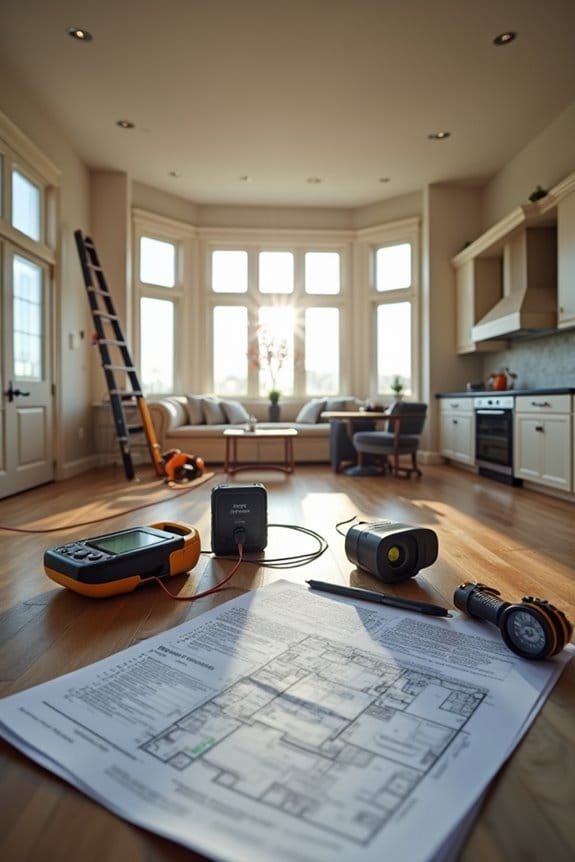
While it might seem like a simple task, the duration of a home inspection can vary considerably based on the size of the property. Here’s what I’ve noticed about the correlation between home size and inspection duration:
- Standard Homes: Typically take around 2.5 hours.
- Larger Homes: Each additional 500 square feet adds about 30 minutes. A 2,000-square-foot home usually takes around 3 hours.
- Smaller Properties: Condos or tiny homes can often be inspected in 1 to 2 hours.
- Complex Layouts: Homes with unique features or older systems may take up to 4 hours or more.
In my experience, balancing home size with inspection efficiency is essential. So, plan accordingly to avoid surprises!
Report Delivery Timeline
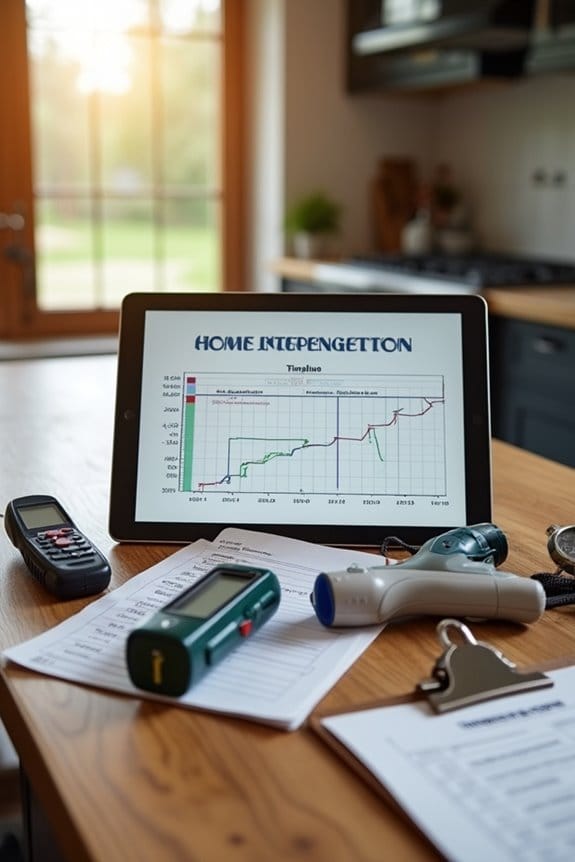
When you’re keen to know the results of your home inspection, waiting for the report can feel like an eternity. Typically, you can expect the report delivery within 24 to 48 hours after the inspection. Some inspectors aim for that sweet 24-hour mark, while others might take three or four business days, depending on their workload.
Here’s a quick rundown on report delivery:
- Report Preparation: Complex properties may take longer to document.
- Delivery Methods: Most inspectors provide reports via email, sometimes accompanied by photos.
Keep in mind that if the inspector was taking notes during the inspection, the report might come faster. The sooner you get it, the sooner you can start asking questions!
Regional Variations in Inspection Duration
Regional variations can really affect how long a home inspection takes, and understanding these differences can save you time and frustration. Here’s what I’ve noticed:
- Urban Inspections: In bigger cities, inspections often take longer—think 3 to 4 hours. Older homes can be tricky, with more systems needing a thorough check.
- Rural Inspections: These can be a mixed bag. While homes may be simpler, travel time can add up. You might be waiting a bit longer for an inspector to reach you.
- Team Inspections: Some regions use teams, cutting down inspection time considerably.
Frequently Asked Questions
Can I Attend the Home Inspection?
Yes, you can attend the home inspection! I recommend doing so, as attending inspections helps you grasp the home’s condition better. Just remember some inspection etiquette—ask questions but let the inspector work without interruptions.
What Should I Prepare for the Inspection?
Preparing for a home inspection’s like setting the stage for a performance. I always make a checklist of items to address, follow inspection tips, and guarantee everything’s accessible and functional to impress potential buyers.
Are Inspections Different for New Homes?
Yes, inspections for new construction have distinct differences. I find they focus more on verifying builder compliance and identifying potential defects, rather than addressing wear and tear issues commonly seen in older homes.
How Much Does a Home Inspection Cost?
When considering home inspection pricing, I’ve found costs vary widely. Factors like home size, age, and location influence the price. Typically, I see average costs ranging from $400 to $600, depending on those factors.
What Happens if Issues Are Found?
If issues are found in inspection reports, I typically enter repair negotiations with the seller. We might discuss repairs, price reductions, or credits to address any concerns before deciding whether to proceed with the purchase.

